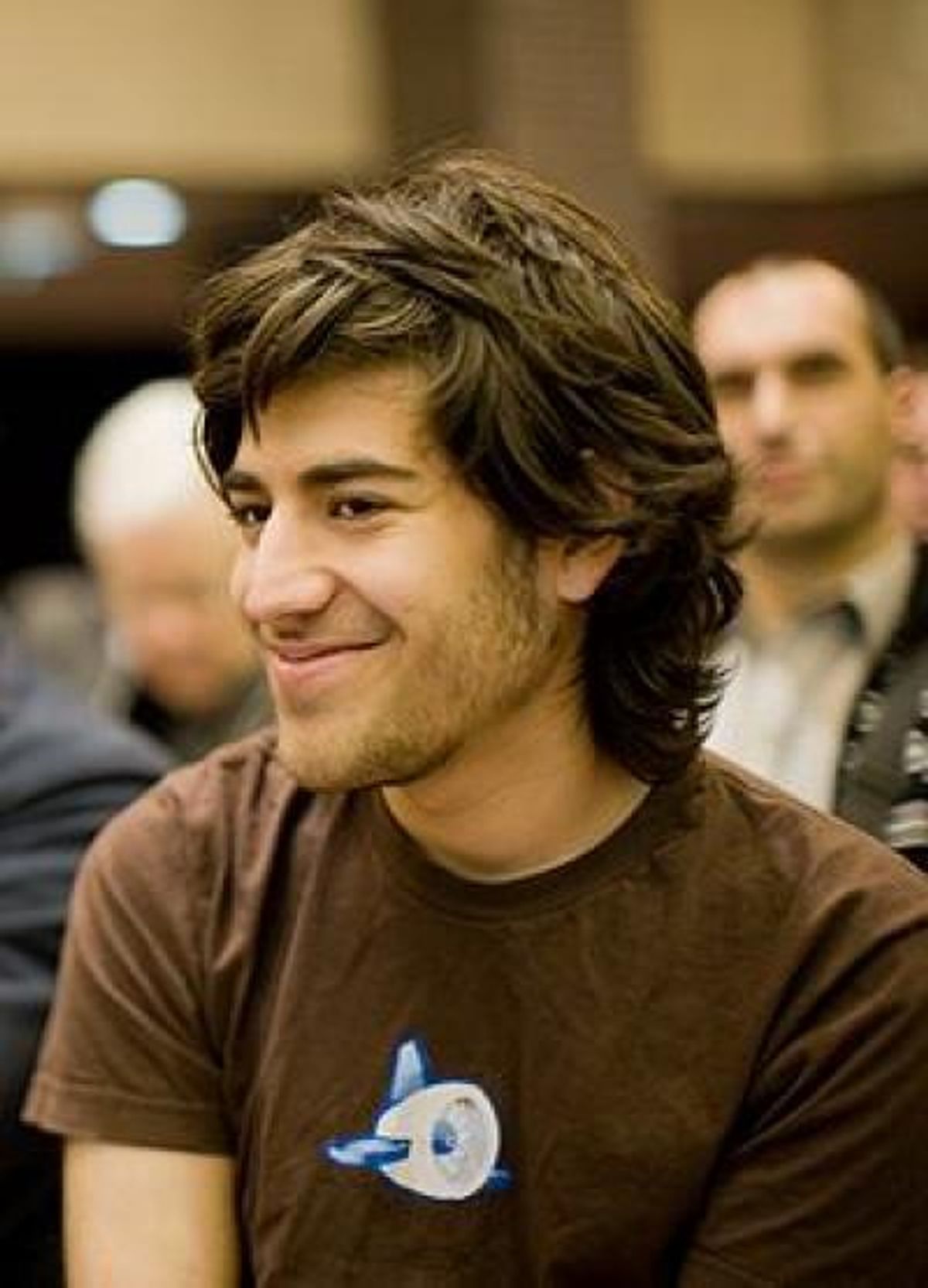
The popular web activist, who refused to label his sexuality, had battled depression and a police investigation in recent years.
January 13 2013 11:40 AM EST
November 17 2015 5:28 AM EST
deliciousdiane
By continuing to use our site, you agree to our Private Policy and Terms of Use.

A famed Internet activist, hacker, author, and programer who created RSS and co-founded the company that became Reddit committed suicide Friday in New York City, according to The Tech. Aaron Swartz's death has caused a furor among the technorati, in part because, according to MSNBC's Chris Hayes, "at the time of his death Aaron was being prosecuted by the federal government and threatened with up to 35 years in prison and $1 million in fines for the crime of -- and I'm not exaggerating here -- downloading too many free articles from the online database of scholarly work JSTOR."
According to Gawker's Taylor Berman, Swartz was arrested in July 2011 for "allegedly downloading approximately 4 million academic journals from JSTOR with the intent to distribute them for free over P2p file-sharing sites. He was charged with wire fraud, computer fraud, unlawfully obtaining information from a protected computer, and recklessly damaging a protected computer. In September 2012, Swartz appeared in court and pled not guilty to those charges. Just two days before Swartz's suicide, JSTOR -- perhaps because of Swartz's actions -- began offering free but limited access to its archives."
The activist, who had publicly battled depression, was a teen genius who coauthored Really Simple Syndication, known better as RSS, a web protocol that Berman calls the key component "of much of the web's entire publishing infrastructure" when he was only 14-years-old. In addition to RSS and Reddit, Swartz founded Demand Progress, a group that played a key role in fighting the Stop Online Piracy Act, and he developed the Internet architecture for the Creative Commons licensing system.
His surviving partner is Taren Stinebrickner-Kauffman, the founder and executive director of SumOfUs.org, which focuses on corporate accountability.The two had paired up last year to work on Image Atlas, a photography project that, according to the description at the New Museum where it is housed, investigates cultural differences and similarities by indexing top image results for given search terms across local search engines throughout the world.
Stinebrickner-Kauffman released a statement yesterday along with parents Robert and Susan Swartz and his brothers Noah and Benm saying they were all in shock and had not yet come to terms with his passing.They put blame for his suicide squarely on the criminal investigation that hounded Swartz:
"Aaron's death is not simply a personal tragedy. It is the product of a criminal justice system rife with intimidation and prosecutorial overreach. Decisions made by officials in the Massachusetts U.S. Attorney's office and at MIT contributed to his death. The US Attorney's office pursued an exceptionally harsh array of charges, carrying potentially over 30 years in prison, to punish an alleged crime that had no victims. Meanwhile, unlike JSTOR, MIT refused to stand up for Aaron and its own community's most cherished principles."
Swartz's funeral will be held on Tuesday, January 15 at Central Avenue Synagogue in Highland Park, Illinois. More information can be found at RememberAaronSW.com.
The full official statement from Swartz's family is below:
"Our beloved brother, son, friend, and partner Aaron Swartz hanged himself on Friday in his Brooklyn apartment. We are in shock, and have not yet come to terms with his passing.
Aaron's insatiable curiosity, creativity, and brilliance; his reflexive empathy and capacity for selfless, boundless love; his refusal to accept injustice as inevitable--these gifts made the world, and our lives, far brighter. We're grateful for our time with him, to those who loved him and stood with him, and to all of those who continue his work for a better world.
Aaron's commitment to social justice was profound, and defined his life. He was instrumental to the defeat of an Internet censorship bill; he fought for a more democratic, open, and accountable political system; and he helped to create, build, and preserve a dizzying range of scholarly projects that extended the scope and accessibility of human knowledge. He used his prodigious skills as a programmer and technologist not to enrich himself but to make the Internet and the world a fairer, better place. His deeply humane writing touched minds and hearts across generations and continents. He earned the friendship of thousands and the respect and support of millions more.
Aaron's death is not simply a personal tragedy. It is the product of a criminal justice system rife with intimidation and prosecutorial overreach. Decisions made by officials in the Massachusetts U.S. Attorney's office and at MIT contributed to his death. The US Attorney's office pursued an exceptionally harsh array of charges, carrying potentially over 30 years in prison, to punish an alleged crime that had no victims. Meanwhile, unlike JSTOR, MIT refused to stand up for Aaron and its own community's most cherished principles.
Today, we grieve for the extraordinary and irreplaceable man that we have lost."
Viral post saying Republicans 'have two daddies now' has MAGA hot and bothered